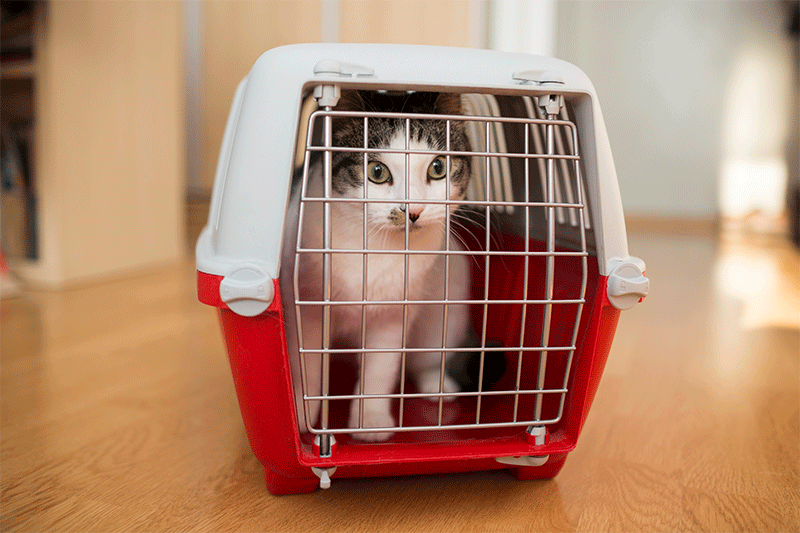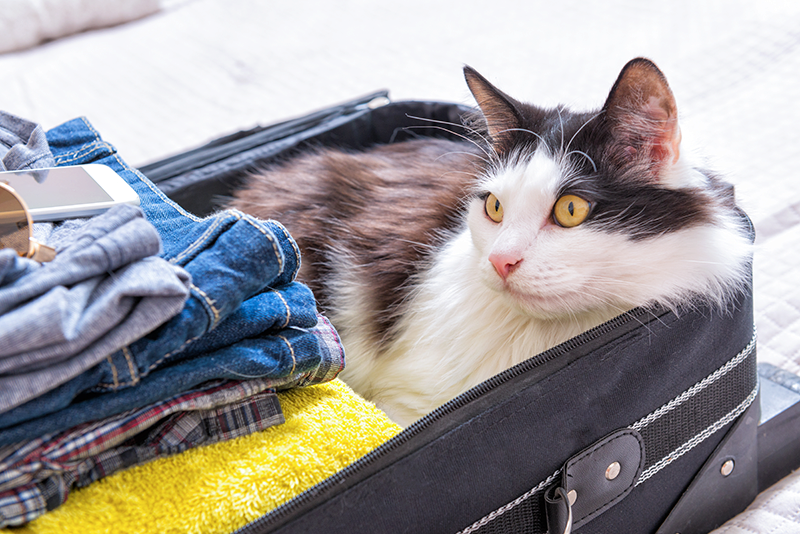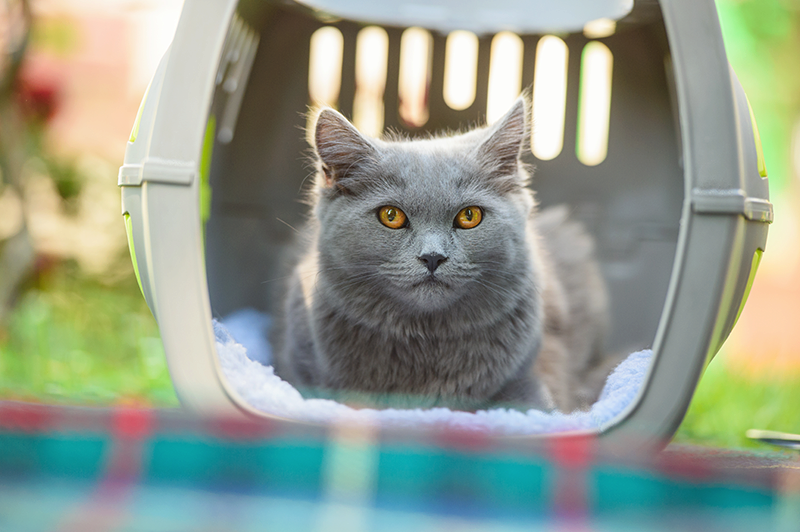Cat Scared of the Car? How to Calm Down a Nervous Cat
As much as you might like to have your kitty join you on vacation, cats are creatures of habit and probably won't care much for the change in routine and scenery a vacation offers. Some cats become very nervous in unfamiliar situations, like cars. They might start meowing loudly or even get sick. If this sounds like your cat, you need every tip you can find to help calm down your cat in the car.
Familiar Smells Can Help Your Cat Stay Calm
Some cats love to travel, especially if they get accustomed to it as a kitten. But some cats need a little extra help to stay calm. When traveling, it's very important to maintain some sense of routine for your kitty. This normalcy will help your cat feel calmer.
Be sure to bring all your cat's necessities, like food, bowls, toys, travel-sized litter, and a bed or blanket. When choosing which bed or blanket to bring, pick your cat's favorite or one she spends a lot of time in. The familiar feel and scents will provide a sense of security.
To enhance the sense of normalcy and further calm your cat, put your cat's carrier in your home for a few days before the trip and keep a favorite blanket or towel inside.1 Give her treats occasionally in the carrier too. The goal is for the carrier to smell like home once you put it in the car and for your cat to find the carrier comforting by the time you get on the road.
Play with Your Cat Before You Leave
Try playing with your cat a lot before you travel, so he'll feel sleepier. A wand chase or a red laser pointer with lots of jumping and running can help him feel ready to snuggle down for the long journey on the road.
Take a Test Drive
If your cat has never ridden in a car before or if it's been a long time, then you might want to take a test drive first. Get a nice cat carrier that buckles into the car and take your kitty on a short drive. Test what makes her nervous. Does music make her upset, but a podcast calms her down? Do you simply need to keep the volume lower?
Your cat might prefer a lightweight blanket over her carrier to keep all the sights and sounds to a minimum. Or, she might need a person in the backseat next to her speaking soothing words.
If your kitty drools, cries a lot, pants, or throws up during the trip, she might have motion sickness. You may want to talk to your veterinarian about medications that can help.
Use Calming Pheromones
For some cats, a product with calming pheromones can make all the difference in whether he's comfortable or nervous while on the road. Comfort Zone Spray & Scratch Control Spray mimics your cat's natural pheromones, letting him know that everything is okay. Spray the inside of the carrier or your car about 15 minutes before transporting your cat. If you spray the carrier, spray each corner, the ceiling, and the floor one to two times each.
Or you can snap a Comfort Zone Calming Collar around your cat's neck. This way, the calming pheromones will stay with him wherever you end up.
Watch the Temperature & Food
Make sure it's not too cold or too hot in the car for your kitty. You also want to be mindful of the sun rays shining through the windows. You may want to put a shade on the windows or a light cover on your cat's carrier, so she doesn't overheat.
You might also avoid feeding your cat right before you get on the road but offer water at rest stops (while your car door is closed, so your cat can't escape). Some cats may have an upset tummy if you feed them before traveling.
Stay Near Your Cat
Some cats will feel calmer on the road if they have someone sitting next to them. When your cat gets nervous, speak softly to your kitty. If you have a passenger in the seat next to your cat, she can put a comforting hand next to the carrier and speak soothingly. Or buckle your cat's carrier into the seat next to yours.
Don't open the carrier while driving because you don't want a scared cat jumping out and hiding near the brakes at your feet. Speak softly and evenly, and keep the music calm. Take turns and bumps slowly if you can, so you don't surprise your cat unexpectedly.
You Might Need to Leave Your Cat Home or with a Sitter
Sometimes cats cannot adjust to riding in a car. If this sounds like your situation, your best bet might be to leave your kitty at home or a pet hotel. If you decide to leave your kitty home alone, ask someone to stop by to check on your pet regularly and leave a list of instructions. Be sure to include what kind of food and how much to serve, how much water to give, any medication your cat needs, and a phone number for the veterinarian, in case of an emergency. Also, make sure they know how to get in touch with you if they have any questions or problems.
There are other options besides leaving your cat home alone, although that might be his favorite! You can ask a friend to "kitty-sit" while you're gone by either staying in your home or taking your cat into their home. If your cat sitter takes your cat into their home, be mindful that this change of scenery can be very stressful for some cats. And if your cat somehow escapes, it is unlikely he will be able to find his way home. So this option really depends on your cat's personality.
There is also the option of taking your cat to a pet hotel. In some locations, laws have been passed to make sure these businesses are regularly monitored, so the cats are taken care of in a way that would please even the pickiest of owners. Recently, there has even been a trend for posh cat hotels and bed & breakfasts. Make sure you do your research and visit the locations to see which one is best for you and your cat.
If you decide to take your cat with you while traveling, make sure you have everything you need to help keep your kitty calm and happy. Take a few test runs first to figure out what works best for your cat and what might make her even more nervous.
1. Bingham, Andee. "Traveling with Cats in the Car: 5 Ways to Calm Your Kitty." Catster, 19 November 2018, https://www.catster.com/lifestyle/5-tips-calm-cat-car-travel.




